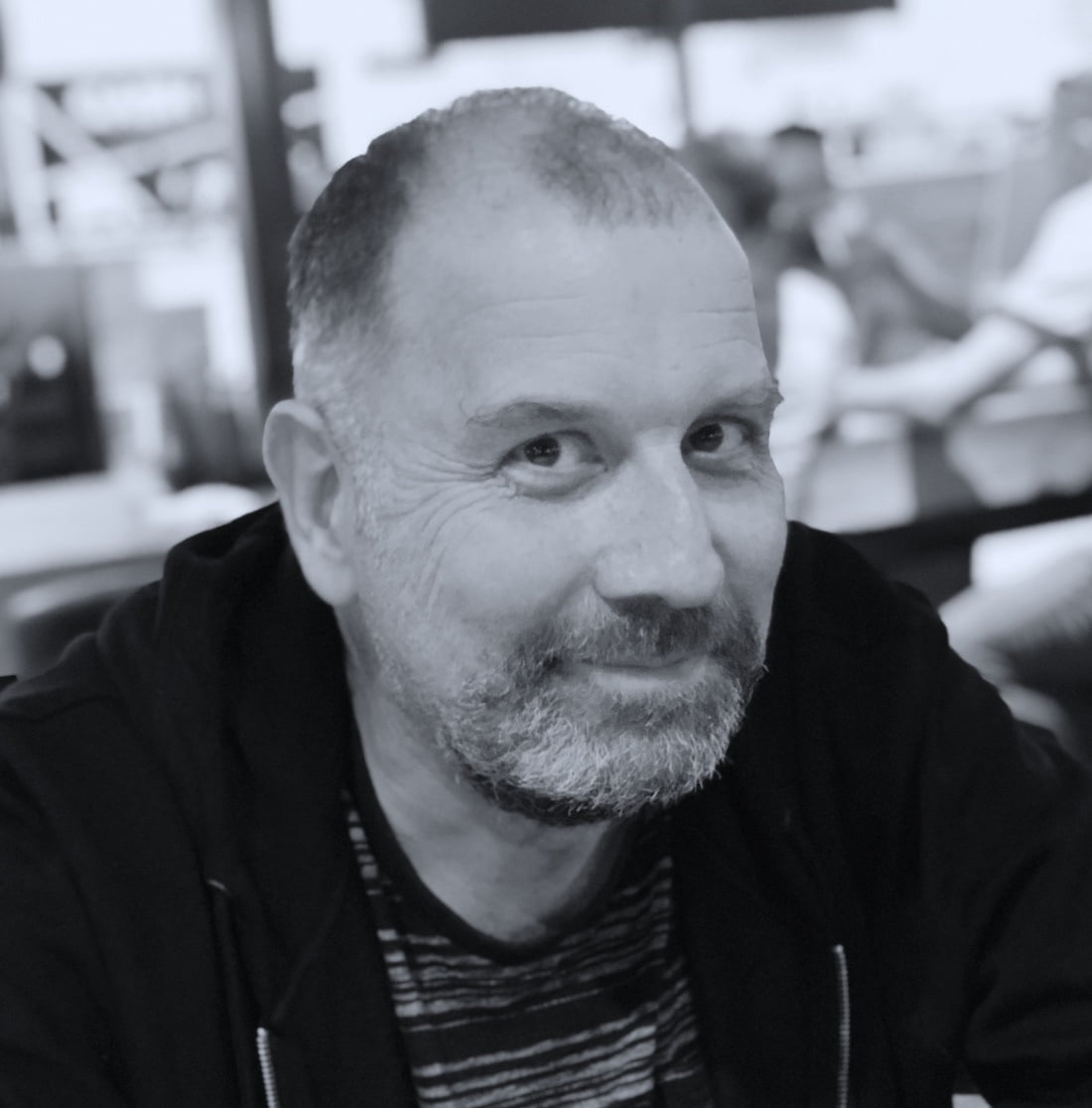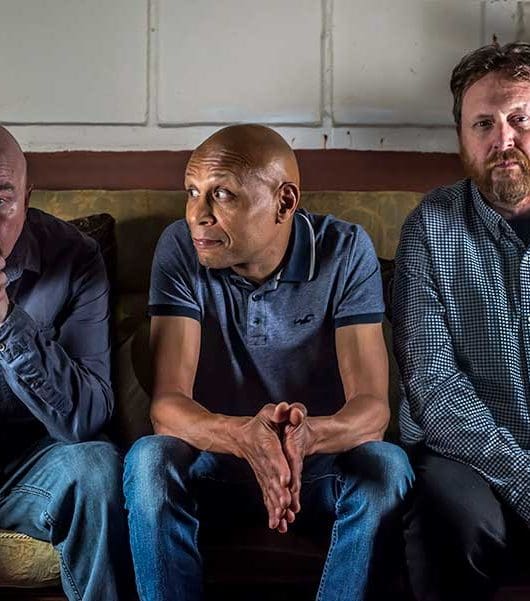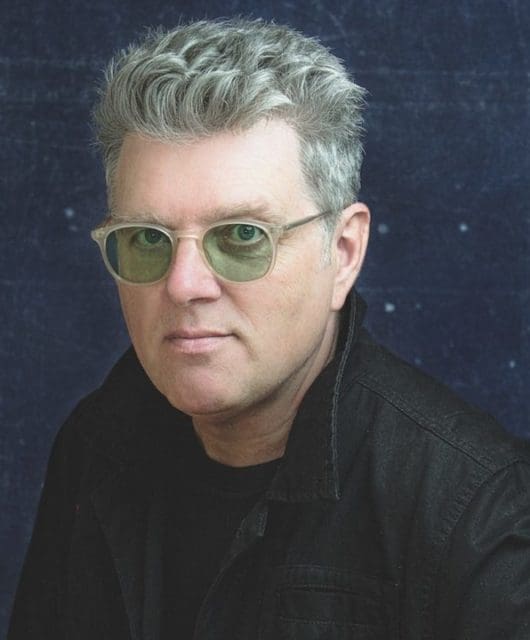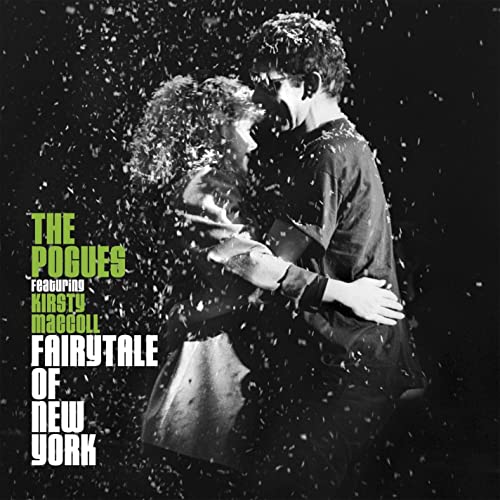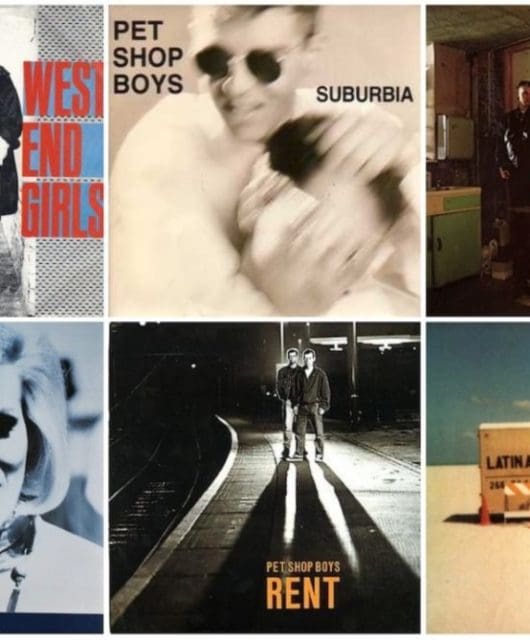Propaganda: Do You Want To Know A Secret?
By Andy Jones | March 19, 2021
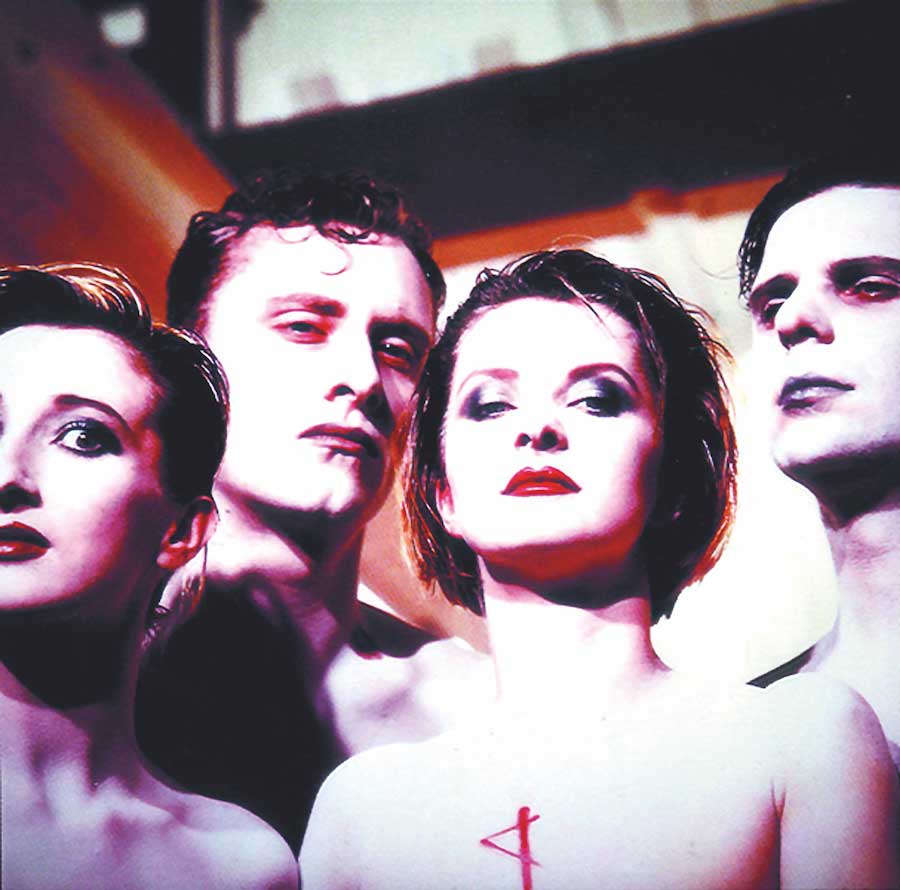 In this article from 2017 we traced the extraordinary story of the debut album by Propaganda, A Secret Wish, a perfectly indulgent record that, despite nearly destroying the band, is still very much alive today… By Andy Jones
In this article from 2017 we traced the extraordinary story of the debut album by Propaganda, A Secret Wish, a perfectly indulgent record that, despite nearly destroying the band, is still very much alive today… By Andy Jones
At the turn of 1983, ZTT was enjoying huge success with Frankie Goes To Hollywood, but the label already had plans to follow up that success with a very different kind of act.
Propaganda was, according to Trevor Horn, a bit of a ‘strange line-up’ but Paul Morley insisted they sign them for an album, and what a debut that would prove to be.
A Secret Wish is still a maturing red wine and many cite it as one of ZTT’s finest. When you consider that label’s output, that is quite some compliment.
Yet it wasn’t an easy recording. With most of the band in Germany while it was being put together at Sarm Studios in London, its production was left largely down to Stephen Lipson, one of ZTT’s team of producers and engineers, and singer Claudia Brücken as the only regular band attendee.
The recording would have a huge impact on the band, eventually ripping the heart from them as the costs involved in its creation became apparent. But the album lives on with an Art Of The Album reissue.
A ZTT debut
In its infancy, ZTT was pretty much Trevor Horn’s Art of Noise and Frankie Goes to Hollywood, but discussions with Propaganda opened early in the label’s life, too, as Brücken recounts: “Originally Propaganda was Susanne [Freytag], Andreas [Thein] and Ralf [Dörper] and they had done one demo called Discipline, I think, a Throbbing Gristle cover.
“Andreas knew a journalist who knew Paul Morley and he played Paul the cassette who played it to Trevor and said ‘I’d like that to be my first signing’.”
“They needed a musician because at the time it was just heavy beats and dark, heavy synth sounds,” she adds of her and composer Michael Mertens joining the band.

“Susanne was speaking in a very tough voice over it, so for some musicality they needed a singer and, because I had already been in a band with Susanne, I was asked to join.
“We got invited to Sarm Studios because Trevor wanted to see what else we had up our sleeves, so we did a bit of writing and programming and from that they decided to sign us.”
“Paul came up with this idea,” Trevor Horn recalls of signing the band. “I was such a fan of Kraftwerk and Germany was kind of like the home of techno, so Paul thought it would be an interesting idea to sign a German band.
“Of course, he had Propaganda in mind. There were two young ladies, Claudia and Susanne, and a strange guy who was the sort of punk element [Thein] and then a classical musician [Mertens] and a banker [Dörper]! It was a strange line-up, but I was intrigued by the lyrics, you know?”
The band’s first track was the epic, Horn-produced Dr. Mabuse, packed with dramatic spoken word sections, huge hooks, and every piece of the then cutting-edge technology you could find within Sarm West studios.
“It was done as a sort of experiment,” Stephen recalls who engineered the track. “There were three of us operating various machines and we would not put anything down until we had the whole track going in the machines, which at the time was kind of revolutionary.”
The single was a hit but Frankie was taking all of Trevor’s time up so Stephen was asked to produce the rest of the album, which progressed largely without most of the band who were in their native Germany, except Brücken who lived in London.
- Read more: xPropaganda interview
Stephen then used all of that technology, including a Synclavier digital sampling instrument, to create the sound of the band, starting each track with as little as some lyrics and chords and a vision that, according to him, came more from Morley than anyone else…
Lipson says: “I’m sure the band did have a vision because they had lyrics and chords from Michael [Mertens], but the driving force, like the amplifier of whatever vision there was, was without doubt Paul Morley.”
So it was largely down to Stephen to interpret what he got with little involvement from the band…
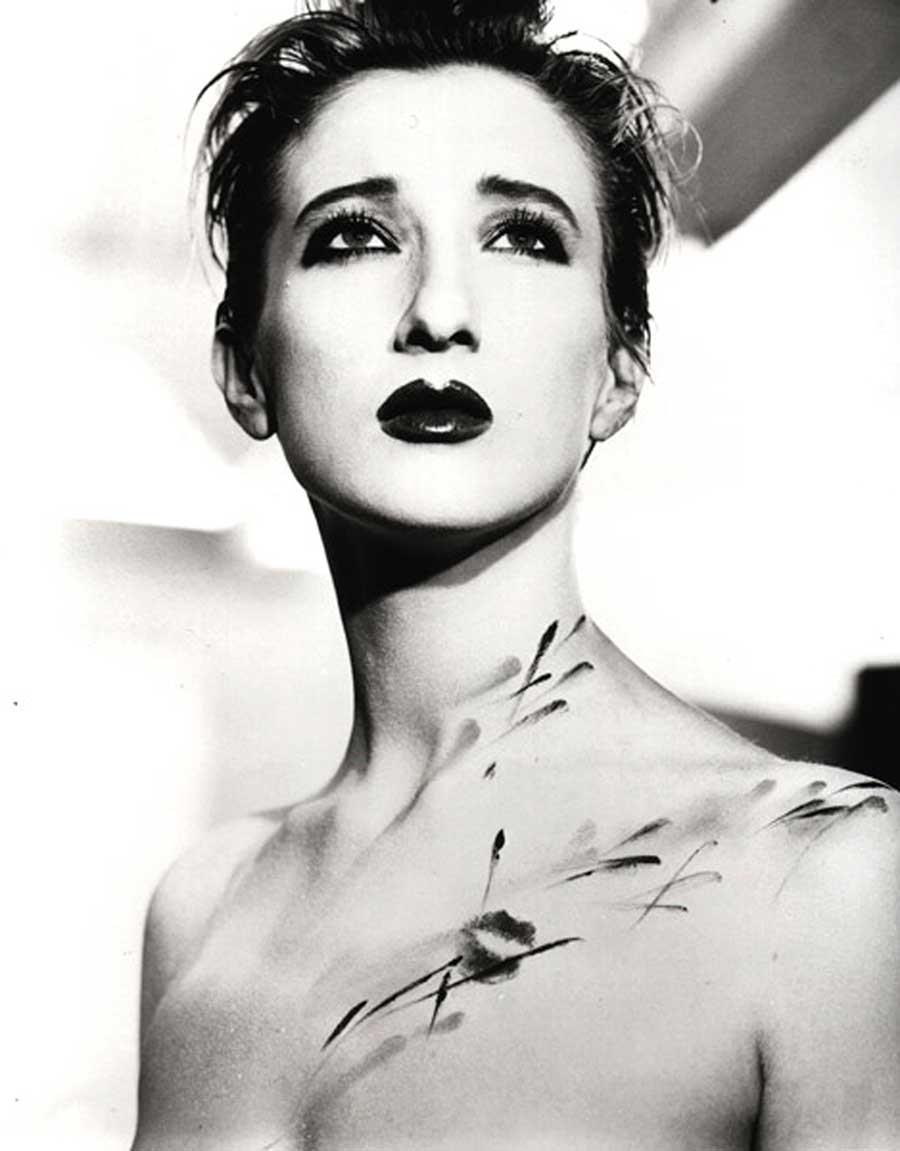
“I suppose that’s harsh but fair, yeah. Of course, memory is not only selective but we do rewrite history don’t we? If I’m wrong on these things forgive me, but that is where my head is.
“Claudia would come in and do her vocals at regular intervals – I can’t remember how I got stuff from Michael but I don’t remember him being there very much. But Ralf and Andreas, I only remember them being there a couple of times and Susanne would come in and do whatever she had to do and that was that.
“So really it was me, and I had Andy Richards [keyboards] in loads and then various people appear and do bits.”
With more contact with the band at the time Claudia is keen to stress a different viewpoint. “Obviously the band played a hugely important role but I was the only one who was living in London,” she says, but does agree that Stephen was responsible for a large part of the sound.
“It is a delicate thing. I mean, they came over a lot and we did say: ‘look guys we need more songs now’ and there was songwriting back and forth so we did that. But obviously flights were always expensive so they came sporadically to listen to what we had done.
“Ralf was working in a bank, Susanne came over later and Michael was writing and there were some writing periods but the actual programming of it was very much Steve.
“I think they were loving what they heard and surely must be proud of what we achieved but I can only talk for myself.
“I wanted to make sure that it was going in the right direction. I really loved Stephen’s attitude. There was this combination of energies.
“Paul Morley’s input was just so important. He suggested having Edgar Allen Poe for the track Dream Within
A Dream, which became the opener. I thought that was a magical moment.”
The recording was a slow process. Stephen was working with whatever ingredients he was fed and creating the album track by track. There’s an incredible clip on YouTube of the innovative technology being used on the television show Tomorrow’s World.
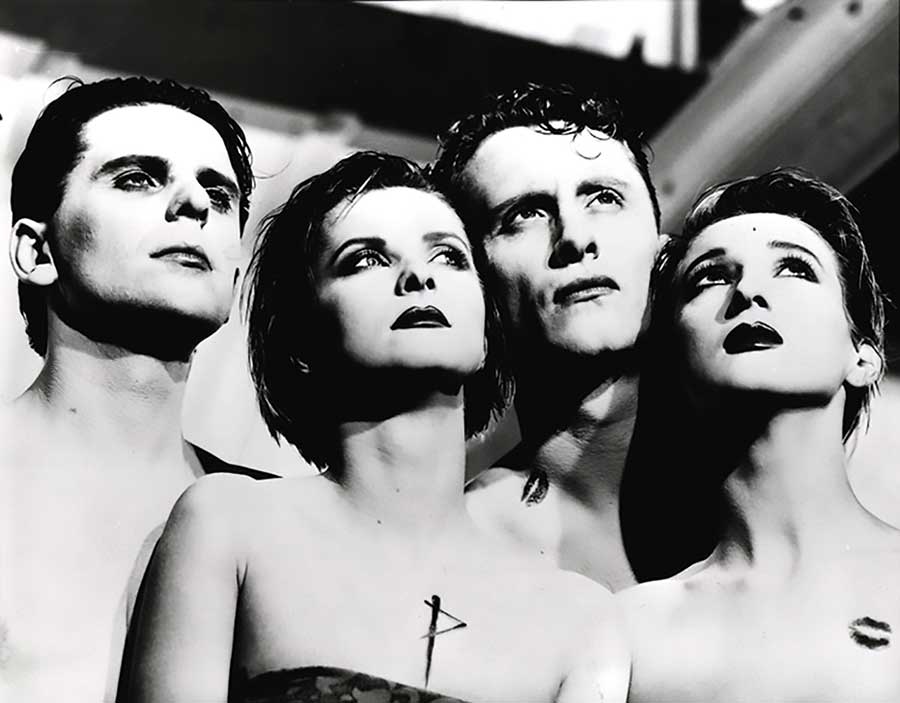
It reveals an insight into the album’s creation, with Stephen explaining how the Synclavier works to astonished presenter Howard Stableford while an exuberant Claudia sings live.
“I thought it was incredible that we had this technology,” she says. “The Synclavier was the most amazing thing I had ever seen. Only Stephen knew how to operate it. I felt super-privileged to get all this attention, all of these facilities with all of these amazing, talented people. It was really expensive, though…”
Claudia has hit upon the point that would have huge ramifications later. The costs were mounting yet there never seemed to be a pressure to complete the album quickly.
“That was a bone of contention,” Stephen recalls. “Working for Jill [Sinclair, co-founder of ZTT] and Trevor, I didn’t think in terms of budget. Budgets didn’t seem to be a conversation. But that’s not to say I was flippant in any way.
“We were taking strides all the time so I would defend myself in that area and say I don’t think I was being wasteful. Having said that, the gear was terribly expensive in those days.”
“I had no idea,” says Claudia on the costs. “Beforehand, I was making music for fun and didn’t know the work that was involved in making a song and it ending up on the radio. I never questioned the process, I just kind of ended up in the scenario. The greatest moment was the experimentalism that Stephen had – anything went.”
It really did, including huge orchestral arrangements, and big-name players like Stewart Copeland and Steve Howe. But it was all adding up as the clock ticked.
“I listen to it now and it sounds terribly self-indulgent,” Stephen says. “I could do whatever I wanted, which was obviously to make the record as good as possible but, anyway…”
“These were the days when you could actually spend some money on a record,” says Trevor Horn.
“I think that as the album went on Steve got better and better at the production. I love the guitar solo that Steve Howe did on Murder Of Love, I think it’s absolutely beautiful – that’s a highlight for me.”
The dream ends
When the album was finally finished, an exhausted Lipson played it in its final running order to ZTT’s Dave Robinson, Jill and Trevor, and didn’t quite get the reaction he was expecting.
“It was late one night,” he recalls, “they sat on the sofa and said: ‘go on then, play us what you’ve got’. The first song was Dream Within A Dream and I remember it ended and I think it was Dave who said ‘yeah, what’s the single then?’ or some disparaging remark and it absolutely took the wind out of my sails.”
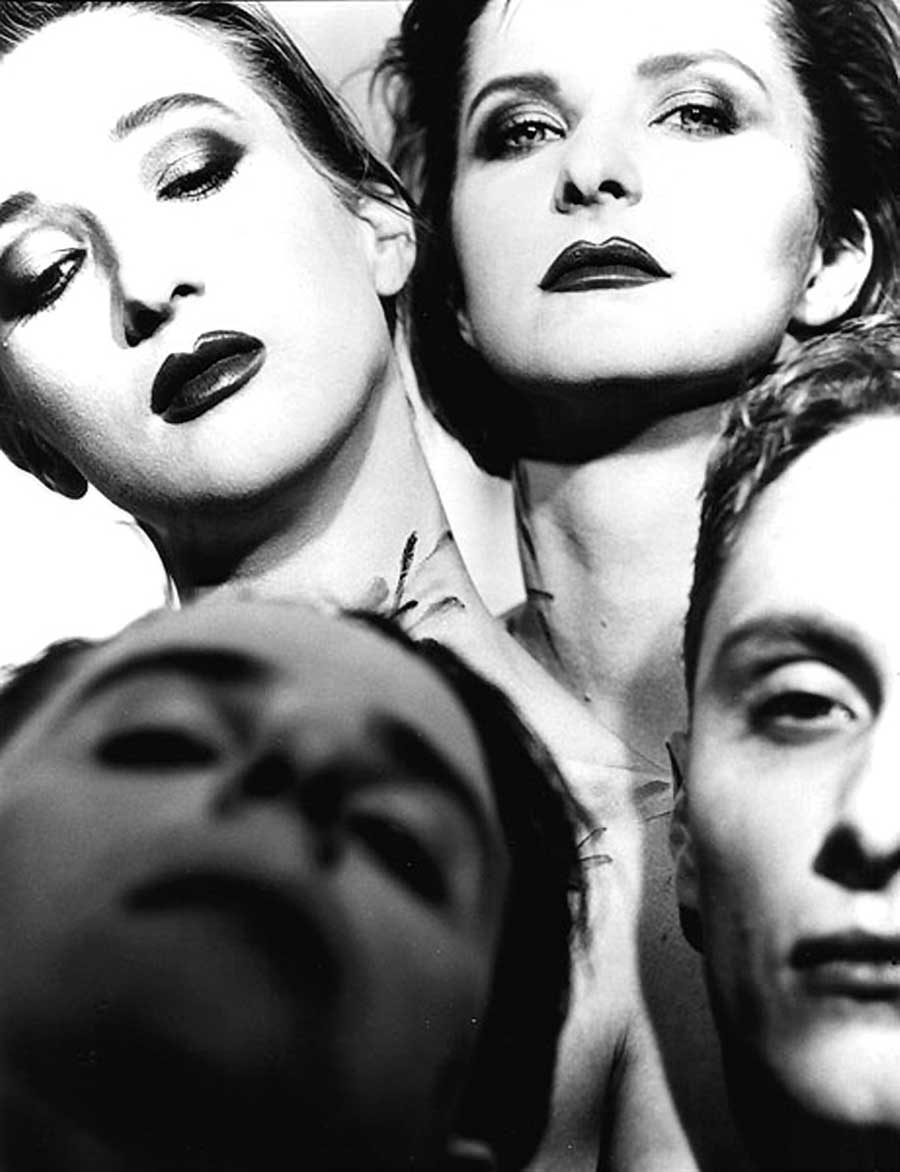
Luckily, Trevor thought “the record came out well” and Claudia and the band were happy with the results.
“For me, I always like the album as a whole and that makes it special,” she says. “It is a real trip and I feel like we had complete artistic freedom.”
Whatever the budget conditions and input from the band, A Secret Wish is a milestone recording in so many ways. A lavish, pompous recording in parts, it is so ZTT, so bombastic and dramatic that it helped to define a label’s sound.
The nightmare begins
Eventually those budget issues would catch up with A Secret Wish and that artistic freedom would have to be paid for. Propaganda felt its deal with ZTT wasn’t a fair one as it would take so long to recoup the costs of the album. Eventually, the band would leave the label but Claudia stayed on and signed to ZTT as a solo artist.
“We had a ‘manager’ who wasn’t really a manager,” she says. “For me, a good manager is holding something together and making things work. With the others, the whole costs question came about. Obviously that was a big thing – they realised they probably wouldn’t see any money for a very long time.”
“It was very hard for ZTT to pay particularly well,” Trevor recalls, “so we were always vulnerable to that. They [Propaganda] didn’t even renegotiate, you know, they just went.
“In the end, I think it was a mistake because they underestimated particularly Steve’s input and how difficult it is to find that kind of a producer – somebody who really cares and puts their whole heart and soul into it and understands you.”
Claudia certainly did understand both Stephen and ZTT’s roles. “I must have realised that the heart, the sound of the band, came from Stephen and the whole energy came from that label at that time.
“I can’t really talk for the others but maybe they felt left out because they weren’t there or maybe they didn’t feel as secure as I felt in that scenario.”
Compared to Frankie, of course, Propaganda sales were modest, but it has been a continual seller and Brücken states that the band did eventually recoup their costs.
“It was not like Frankie who came in with a bang,” she laughs. “Their album was so successful straight away but ours was the opposite – it just kind of gradually built as people discovered it and people are still discovering it and I like that more that way. I feel it has really stood the test of time.
“A Secret Wish gave me so many possibilities to work with wonderful people throughout my career. It was a total door-opener for me and I’m very grateful for that. So Susanne and I are planning to play the record live.
“Susanne loves the album just as much as I do. We want to do it in conjunction with the re-release of the album and to celebrate the record.
“Stephen really managed to capture our characters, the way we were at the time and I guess it reminds us of our youth, of course, but I think this album is also our legacy. We’re just picking up on the energy the album still has.”
- Want more from Classic Pop magazine? Get a free digital issue when you sign up to our newsletter!
